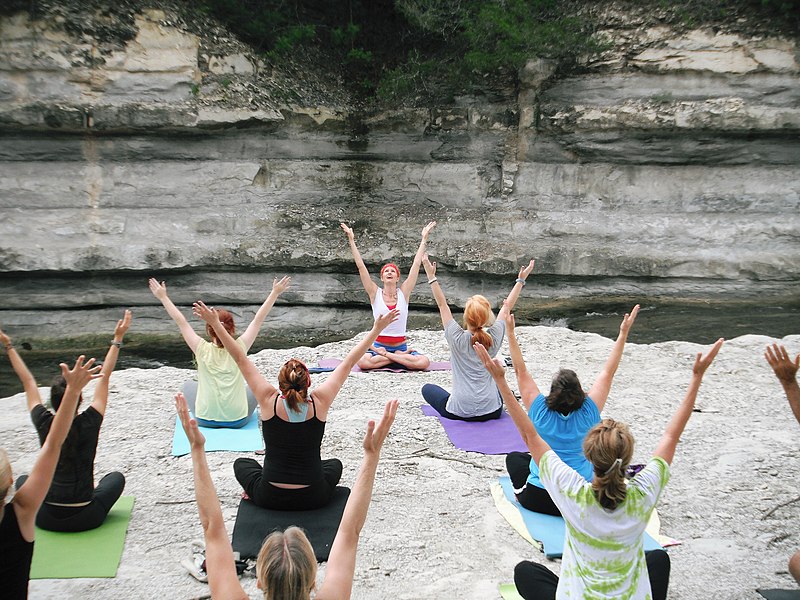Image source: Bill Branson via wikimediacommons.org
Nothing is impossible in life. Just tune in, and know that in you is the answer to everything.
— Tao Porchon-Lynch
We all know that exercise is helpful at any age — but as we grow older, it becomes even more important. From preventing diseases like osteoporosis, to keeping our minds sharp, physical activity is a central part of any rehabilitation. It’s also a key part of a well-rounded home care schedule for elderly people. If you have an elderly person in your life who’s living at home, but you’re not sure if you’re able to provide them with the proper care they deserve, programs such as PACE’ all-inclusive elderly care (known as PACE) can prove invaluable. Centers like these offer exercise, social activities, and much more — not only at their on-site locations, but through specialized home care plans. Included in these personal care plans are physical, recreational, and occupational therapies specifically designed for each person’s individual needs. Physical help at home
Aside from ensuring visits anywhere from everyday to once per week, a compassionate home care program will provide your elderly loved one with a consistent, small group of caregivers with whom they can bond. Among this team of empathetic professionals are trained occupational and physical therapists to offer both short-term pain relief and long-term healing. Body-centric therapies such as these are invaluable tools that serve our physical, mental, and emotional states, too. They are necessary for moving through many types of injuries and illnesses, as well as an important part of general self-care maintenance for many elderly people.
Within these kinesthetic therapies, there are many body-minded practices that help to both improve one’s physical condition, as well as brighten the mind. Yoga, for example, is commonly used to accompany traditional physical therapies, particularly for older people whose bodies require gentle approaches.

Image source: Yoga4Love via wikimediacommons.org
Yoga and occupational therapy
For example, occupational therapist Andrea de Marino explains how the gentle stretching of yoga positively contributes to rehabilitation, as “a great way to build strength and body awareness,” while improving “sensory processing and regulation.” She illustrates this point with a story of how yoga helped one of her patients make a significant recovery after suffering a stroke. Though he was at first unable to bear weight on one side of his body, he began to “move his arm in a more coordinated manner” after engaging in targeted yoga practice — “and hopefully will eventually be able to use his arm for functional activities such as dressing and bathing.”
In a similar vein, the oldest yoga teacher in the world, Tao Porchon-Lynch, is further evidence that remaining physically active through therapies like yoga and dance is akin to a first-class ticket to feeling better, and living longer. But many elderly people aren’t capable of attending group yoga classes, or they need one-on-one attention from yoga teachers who specialize in senior care. This is why incorporating a bit of yoga into home care occupational therapy is particularly useful.
There’s no doubt that offering individually-tailored physical and occupational therapies into home care plans for our elderly loved ones or clients is essential — and that augmenting them with other methods of healing, like yoga and mindfulness, can be of significant benefit. Reaching out to organizations like Institute on Aging helps take the pressure off of caregivers and family members to ensure the elderly person is properly cared for; instead, our team of professionals are here to create specialized home care plans to meets all of their needs. And as many caregivers — including yoga teachers and occupational therapists — can attest, oftentimes they find themselves learning more from their elderly clients than the other way around. As one yoga teacher gleaned from one of her 80 year old students, “age is no barrier. She has shown me that we can do anything we set our mind to, no matter what stage of life we are at.”
Take care of your body. It’s the only place you have to live.
— Jim Rohn
If you are unsure of how to best help an aging loved one, the trained and compassionate staff at the Institute on Aging is here to help you make that decision and gain the best in at-home senior care. Contact us to find out more.







